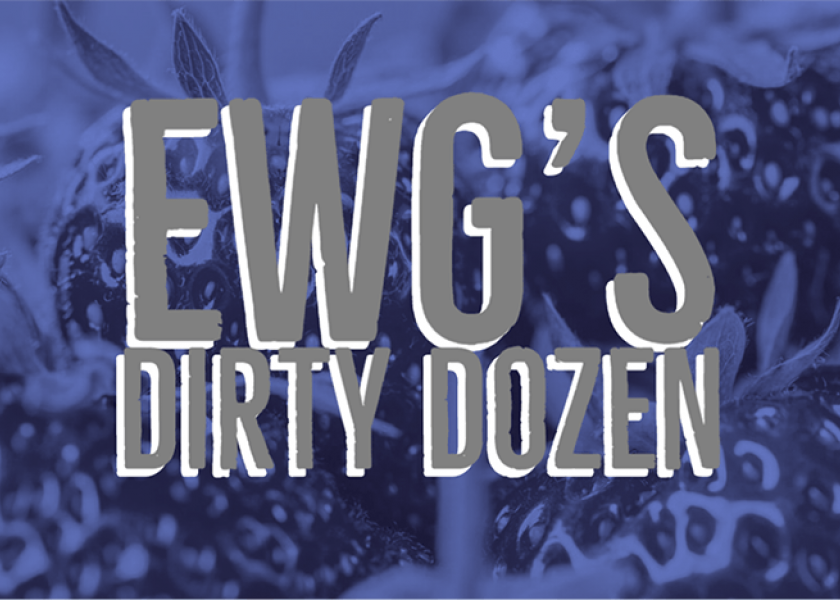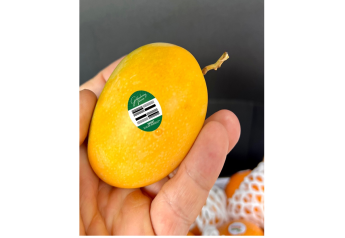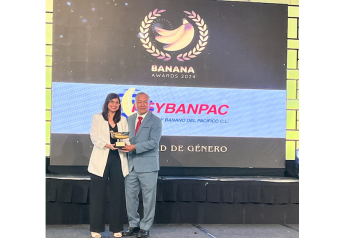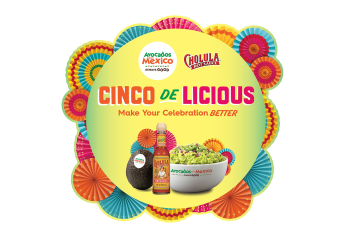2020 “Dirty Dozen” and “Clean 15” lists released

The Environmental Working Group has again named strawberries, spinach and kale as the first three items on its polarizing “Dirty Dozen” list.
The EWG bases its list — which is not peer-reviewed — on pesticide residue data gathered by the U.S. Department of Agriculture. The USDA’s Pesticide Data Program has repeatedly found, year after year, that more than 99% of products sampled have no detectable residue or residue that is below tolerance levels established by the Environmental Protection Agency.
Take a look at the 2019 Dirty Dozen list: EWG releases 2019 'Dirty Dozen,' 'Clean 15' lists
The fresh produce industry has long argued that the Dirty Dozen list is harmful because it discourages people from eating fresh produce, which is critical to good health and especially essential in combating obesity and other diet-related diseases prevalent in the U.S. Peer-reviewed research has shown this effect is particularly damaging for lower-income households.
Teresa Thorne, executive director of the Alliance for Food and Farming, which aims to provide science-based messaging on produce safety to consumers, called on EWG president Ken Cook last week to not release the list, as doing so adds more anxiety — unnecessarily, she said — to an already anxious time given the spread of the new coronavirus COVID-19.
Related: A healthy-food journalist comes clean
Thorne wrote the following in an open letter to Cook:
“Your announced plan to release the so-called ‘Dirty Dozen’ list under current circumstances is misguided and concerning. As you are well aware, this list is not only scientifically unsupportable, but peer-reviewed research has shown it negatively impacts consumers and discourages consumption because it erroneously raises produce safety fears.
“On behalf of the organic and conventional farmers we represent, we ask that you rethink your decision to release and promote this list due to its undermining effect on health efforts to increase consumption of the very foods we are urged to eat more of to boost immunity and prevent illness. Now is not the time to release more inaccurate and fear-based messaging into an already anxiety-ridden world.
“In addition, your list has been repeatedly discredited by scientists. A peer-reviewed analysis has shown that your organization follows no established scientific procedures in the development of the so-called list. Moreover, this analysis found that your list’s recommendations to substitute organic forms of produce for conventional forms does not reduce risk to consumers simply because residues are so low, if present at all, on conventional fruits and vegetables.
“Further, calling fruits and vegetables ‘dirty’ is exceptionally disrespectful to organic and conventional fruit and vegetable farmers. These are the farmers who continue to work hard every day to ensure Americans (as well as citizens in other countries) have an adequate and accessible supply of food in these very troubling and uncertain times. It should be noted that the government has deemed farmers and farm employees as ‘essential’ to our nation’s security — something most of us have recognized for a long, long time.
“Mr. Cook, we all must adapt to this evolving environment, make difficult decisions and change. We have called on you previously to abandon releasing this list. But, now more than ever, we ask for your leadership to stop your organization’s practice of knowingly stoking misplaced food safety fears and denigrating the work of farmers through the release of this list.
“Now is the time to put consumers first and support their choices whether they choose organic or conventionally grown produce. Now is the time to use your organization’s considerable resources to help promote a healthy diet that is rich in fruits and vegetables. With only 1 in 10 Americans eating enough each day, the EWG could help make positive and important strides in improving diets. Please do the right thing.”
The preventative power of fruits and vegetables is well documented. A peer-reviewed study in Nutrition Today in 2016 even found that, if just half of Americans ate one more serving of fruit or vegetables daily, 20,000 cases of cancer could be prevented each year.
Related: Why we write about the 'Dirty Dozen'
At the very end of its news release on the Dirty Dozen list, EWG also noted the importance of fruits and vegetables overall.
“As all Americans struggle to adapt to the reality of daily life during the spread of the coronavirus pandemic, it is important to know that there is no evidence people can be exposed through food,” EWG wrote in the release. “That is why, even though the risks of COVID-19 are serious, consumers should continue to eat plenty of healthy fruits and vegetables, whether they are conventional or organic.”
The EWG “Dirty Dozen” list includes:
The EWG “Clean 15” list includes:
- Avocados
- Sweet corn
- Pineapple
- Onions
- Papaya
- Sweet peas (frozen)
- Eggplants
- Asparagus
- Cauliflower
- Cantaloupes
- Broccoli
- Mushrooms
- Cabbage
- Honeydew melon
- Kiwi
For more perspective on this topic, check out the following articles, two of which are from dietitians, plus one from a horticultural scientist:
Abby Langer Nutrition — The EWG’s Dirty Dozen and Clean Fifteen: Is it Really Reliable?
Kevin M. Folta — A Half Dozen Reasons to Reject the “Dirty Dozen”
Victoria Shanta Retelny — A Dietitian's Take On the "Dirty Dozen" - Illinois Farm Families







